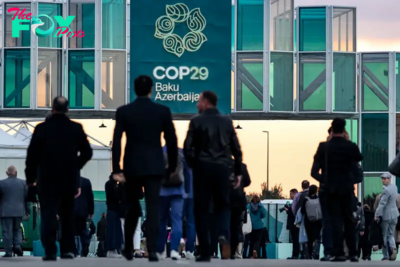World News
Suspicions Abound as Maduro Named Winner in Venezuela Presidential Election
Political tensions in Venezuela soared anew after President NicolĂĄs Maduro was declared the winner of Sundayâs election and the opposition, rejecting that claim, called on the Military to enforce what it said was the will of the people.
After a lengthy delay following the closing of polls, Venezuelaâs electoral center said Maduro won 51.2% of the vote, compared with 44.2% for rival Edmundo GonzĂĄlez. But opposition leader MarĂa Corina Machado, who was barred from running, said her coalition had gained access to 40% of the tabulated votes and had GonzĂĄlez winning 70% of the vote so far.
Read More: Midway Through the Ultimate Election Year: How the World Has Voted So Far
Machado told reporters after the announcement that Venezuelaâs armed forces âhave a duty to ensure that the popular sovereignty expressed in the vote is respected.â GonzĂĄlez, who relied on a network of roughly 30,000 volunteer witnesses at polling stations, urged supporters to avoid protests and said heâd advise them on next steps.
As the results were announced, a pro-government crowd that had gathered in front of Miraflores, the presidential palace, burst into applause. Fireworks could be heard throughout the city, along with people banging on pots and pansâa popular form of protest in Latin America.
Venezuelaâs dollar bonds due in 2026 fell 0.9 cents to 20.7 cents on the dollar, underscoring already-low investor confidence in the South American nation.
The dispute leaves Venezuela, which has faced bouts of hyperiNFLation and seen its oil industry implode under Maduroâs watch, at risk of more turmoil. Sundayâs election was seen as one of the oppositionâs best chances at unseating Maduro since he succeeded the late Hugo Chavez in 2013.
They were bolstered by an exit poll conducted by U.S. firm Edison Research, which had GonzĂĄlez winning by more than 30 percentage points.
The declaration of a Maduro victory prompted the U.S. and some other nations to quickly express doubts about the official tally.
The U.S. has âserious concerns that the result announced does not reflect the will or the votes of the Venezuelan people,â Secretary of State Antony Blinken said Monday while on a visit to Tokyo. Chilean President Gabriel Boric called the results âdifficult to believe,â saying his country wouldnât recognize unverifiable totals. Traditional Maduro allies in Cuba and Nicaragua, on the other hand, congratulated the president.
Despite the Maduro government regularly being accused of undermining democracy to ensure its survival, the opposition was buoyant, if realistic, heading into the vote. Victory appeared within reach to the enthusiastic supporters of Machado and GonzĂĄlez gathered in Caracas late on Sunday.
In Miami, a bastion of anti-Maduro exiles, a giant Venezuelan flag was draped between concrete pillars of an overpass. On a stage in a park, a big screen played scenic views of the country while speakers rallied the crowd. Despite a summer storm dousing the city, people erupted in applause when the screen flashed to a newscast of Machado and they began chanting âliberty.â
Questions about the vote grew when, several hours after the close of voting, there was still no official announcement.
In remarks after the results were announced, the 61-year-old Maduro blamed the delay on a hack of the electoral authorityâs transmission system and said the public prosecutor would investigate the cause and âmake justice.â Public Prosecutor Tarek William Saab said he will host a news conference on Monday morning.
That will likely do little to assuage Maduroâs critics.
âThe Maduro regime has opted to announce a result at odds with all exit polls and early indications of an opposition victory, indicating their intent to stay in power,â said Ryan Berg, director of the Americas Program at the Center for Strategic and International Studies in Washington.
Turnout was 59% of eligible voters, the election agency said. That would be higher than the 2018 vote, which the opposition boycotted, but significantly below the more than 70% turnout in elections in 2006, 2012 and 2013. GonzĂĄlez had said earlier Sunday that turnout had been âmassive.â
Maduro now faces the challenge of legitimizing the vote to his people and the rest of the world, given his governmentâs History of repression. GonzĂĄlez was running in the place of Machado, who experienced a meteoric rise in popularity even after the government banned her from seeking public office.
Venezuelaâs Military leadership, which has long backed Maduro but can act independently, could still choose to intervene in some way. International pressure from allies including Brazil and Colombia might also play a role.
A small mission of observers from the Carter Center is expected to release preliminary findings on Tuesday. A similar team from the United Nations is observing the vote, but per tradition, will not present their findings to the public. Venezuela withdrew an invitation to observe the vote from a more robust European Union group.
If they won, GonzĂĄlez and Machado aimed to dismantle government controls on the economy, privatize the oil industry and reunite families torn apart by the exodus of 7.7 million Venezuelans.
Maduroâs third consecutive term, if it starts as planned in January 2025, would be a challenging one.
Since the economic crisis that stretched from 2013 to 2020, the president has led a remarkable transition away from Chavezâs policies, easing restrictions on Businesses, price controls and regulations, and most significantly, allowing the U.S. dollar to circulate legally. He has withstood crippling U.S. sanctions meant to weaken his government, and prevailed over Juan GuaidĂł, who sought to unseat him after being recognized in 2019 as the legitimate president of Venezuela by the U.S. and dozens of allied nations.
Assuming the results stand, he will now have to navigate a path toward growth for the still-ailing $102 billion economy, find a way toward sanctions relief and negotiate a $158 billion debt restructuring.
Any questions of the legitimacy of his electoral victory, however, would make it difficult for Maduro to be recognized internationally as the countryâs president and secure much-needed sanctions relief.
-

 World News9h ago
World News9h agoWorldâs Best Brands â Brazil
-

 World News1d ago
World News1d agoWorldâs Best Brands â India
-
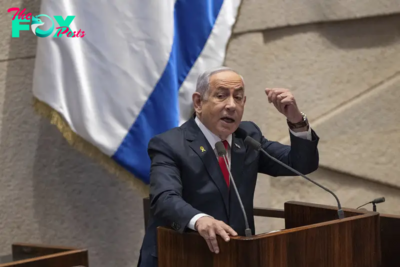
 World News1d ago
World News1d agoInternational Criminal Court Issues Arrest Warrants for Netanyahu and Hamas Commander
-

 World News1d ago
World News1d agoLandmark Bill to Ban Children From Social Media Introduced in Australiaâs Parliament
-
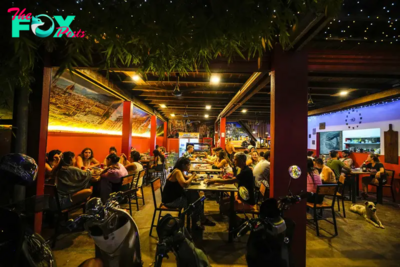
 World News1d ago
World News1d agoAmerican and Australian Tourists Die in Laos After Drinking Tainted Alcohol
-
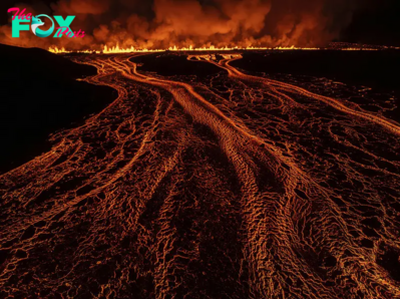
 World News2d ago
World News2d agoSee Photos of the Seventh Volcanic Eruption on Icelandâs Reykjanes Peninsula in 12 Months
-
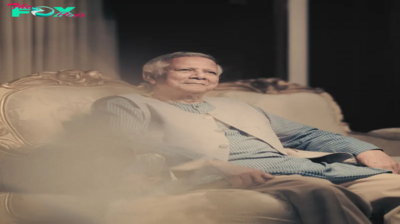
 World News2d ago
World News2d agoMuhammad Yunus on the Race to Build Bangladesh 2.0
-
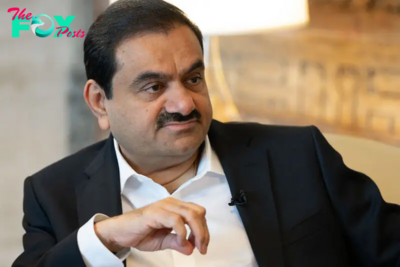
 World News2d ago
World News2d agoU.S. Charges Indian Billionaire Gautam Adani With Defrauding Investors
